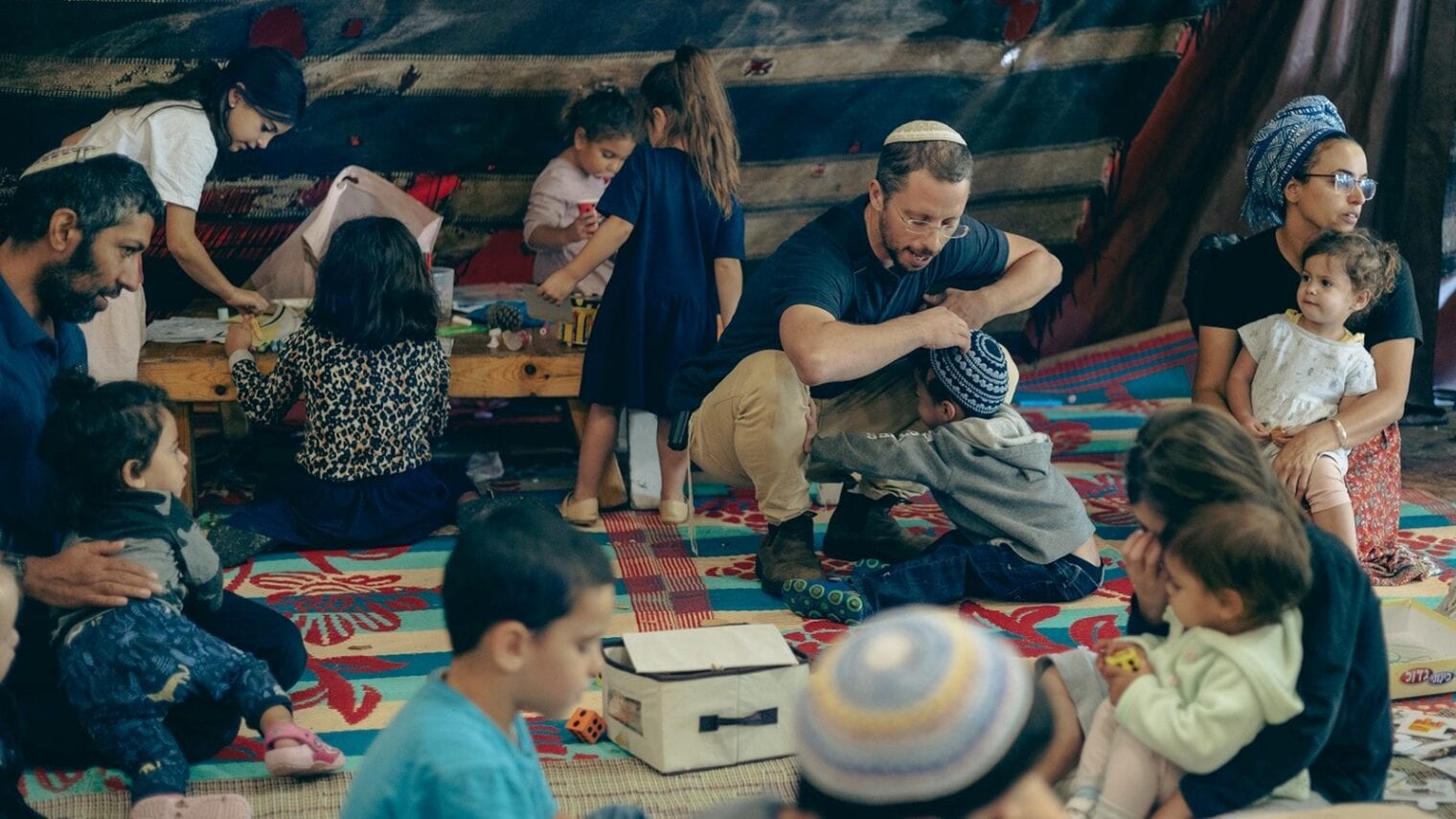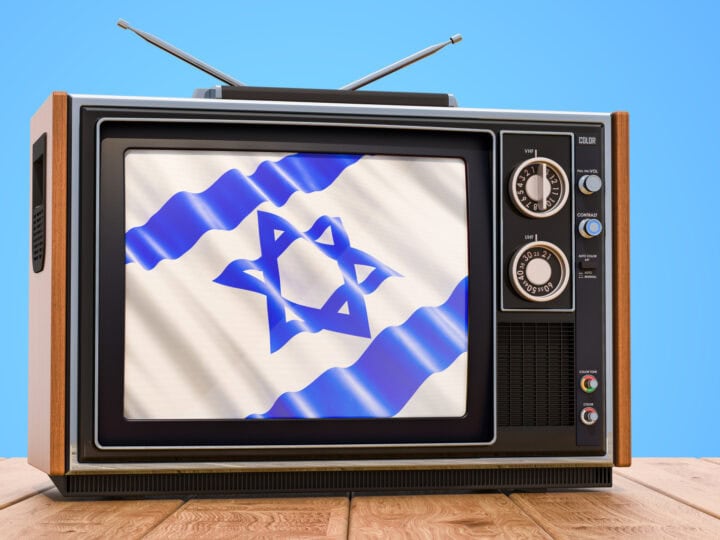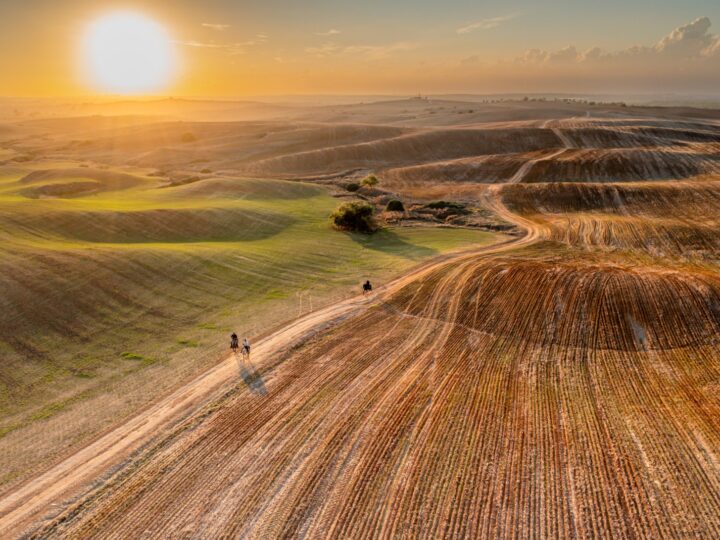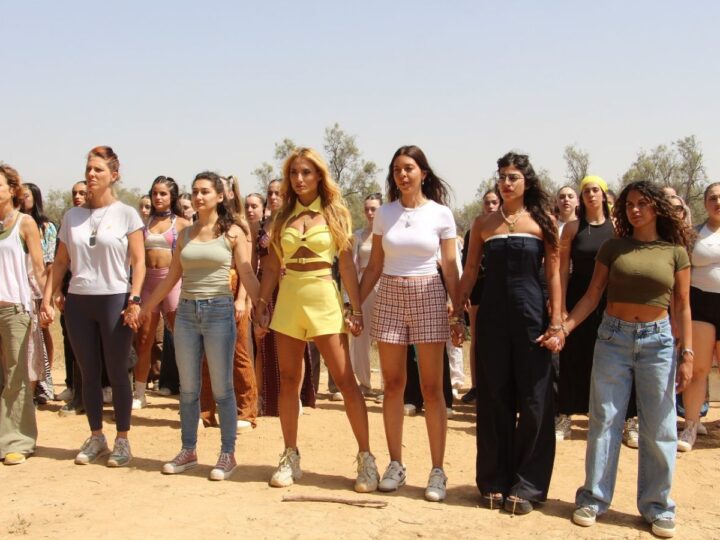It’s not often that you start your day by fighting a dozen terrorists who want to break into your community and kill everyone in it, and end it by becoming a refugee in your own country.
But this is exactly what happened to Yedidia Harush from the village of Shlomit, located both extremely close to the border with the Gaza Strip, and only 700 meters from the border with Egypt.
Heroic battle
On the morning of October 7, Harush and his family were woken up by blaring rocket alert sirens.
“We woke up at 6am after going to bed at 3am because we were celebrating Simchat Torah,” Harush tells ISRAEL21c, referring to the holiday following Sukkot.
Normally rocket fire doesn’t faze those who live in that area since it is, unfortunately, a routine occurrence. But that day something felt different.
“There were a lot of rockets that fell all around us, causing massive damage,” Harush recalls.
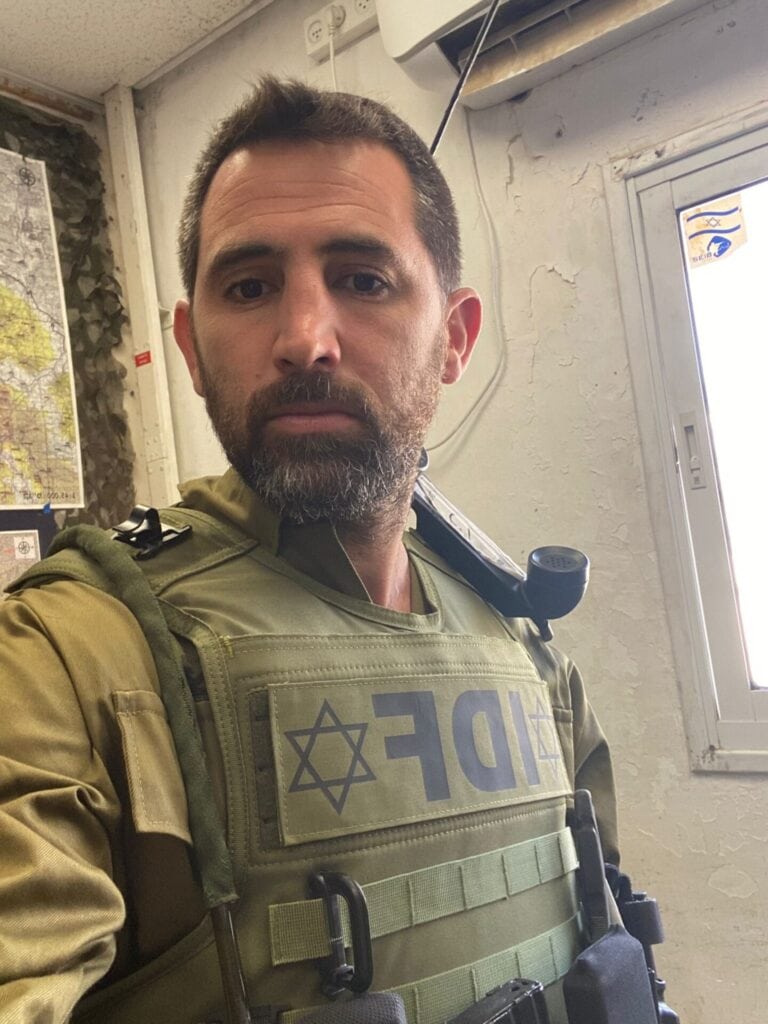
The 35-year-old father of four is a member of a local emergency squad, covering Shlomit as well as neighboring moshavim (agricultural communities) Bnei Netzarim and Naveh. The squads fall under the jurisdiction of the Home Front Command and serve as first responders during emergency security situations.
“I went outside to see what was happening,” recalls Harush. Minutes later he got a call from a friend in Moshav Pri Gan, some 10 kilometers away. “He said there were a couple of terrorists outside his house, and asked if we could come and help because no one in the moshav knows what to do.”
Harush and two of his fellow emergency squad colleagues speeded away to help. “Once there, we realized there were at least 12 terrorists, and not one or two as we originally thought.”
His team quickly requested backup from other members of the squad. “Eventually, there were nine of us in total,” Harush notes.
“We fought a heroic battle for two hours, following which the terrorists retreated,” he says, adding that militants who had been hit in battle were carried away by the terrorists.
Licking the wounds
Two out of the nine emergency squad members who participated in the Pri Gan battle were killed.
Harush later learned that another two who had heard the distress call that morning, and were on the way to the moshav, were murdered by the terrorists and four others were wounded.
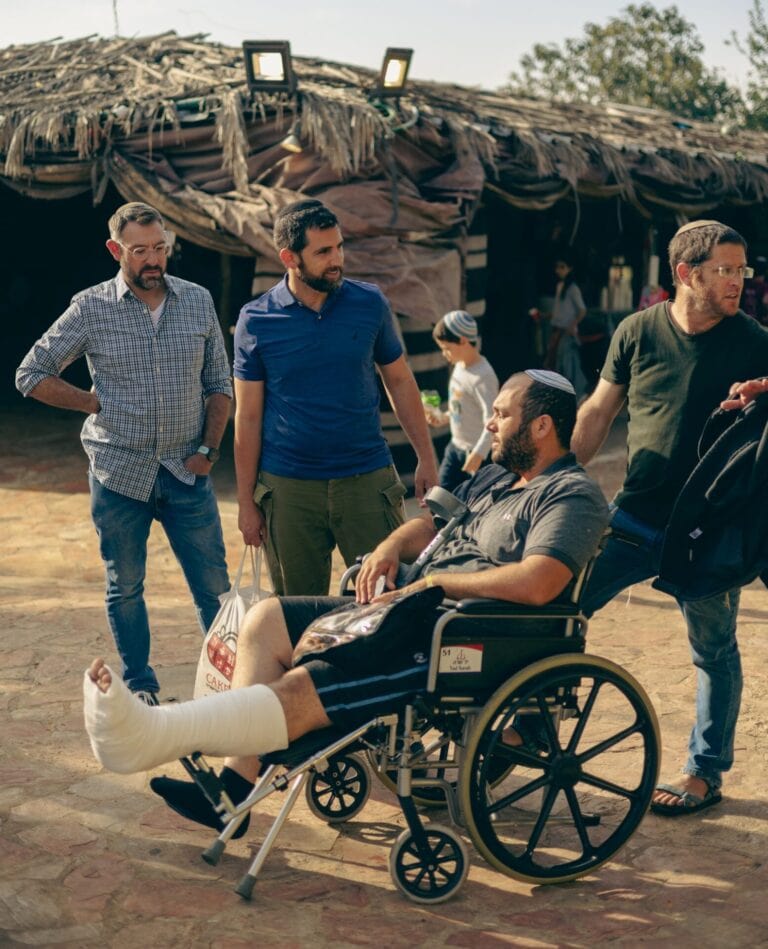
But not a single resident of the 250-strong moshav was hurt in the attack. “The residents of Pri Gan were saved from a massacre,” says Harush.
Harush adds the terrorists left a mountain of ammunition behind, including, “many guns, machine guns, dozens of grenades and tools to open bomb shelters.”
Shortly after the battle was over, the military finally made its way to Pri Gan. “We left the dead in the cold store in the moshav and helped transport the wounded to the assembly point” from which the injured were evacuated by helicopter to the hospital.
The remaining members of the squad rushed back to their respective villages that remained unprotected. “The army entered Shlomit only at 5pm that day; it was nerve-racking,” he says.
The next day, the army evacuated all communities adjacent to the Gaza border.
Refugee in their own country, again
Shlomit’s residents were given safe harbor in a field school in Kfar Ezion, a religious kibbutz in the Judean Hills. “The conditions aren’t the best, it’s not a place that’s suited to host people for a prolonged period of time,” he admits.
“We established a makeshift school and preschool daycare, and we are working on opening a toddler daycare.”
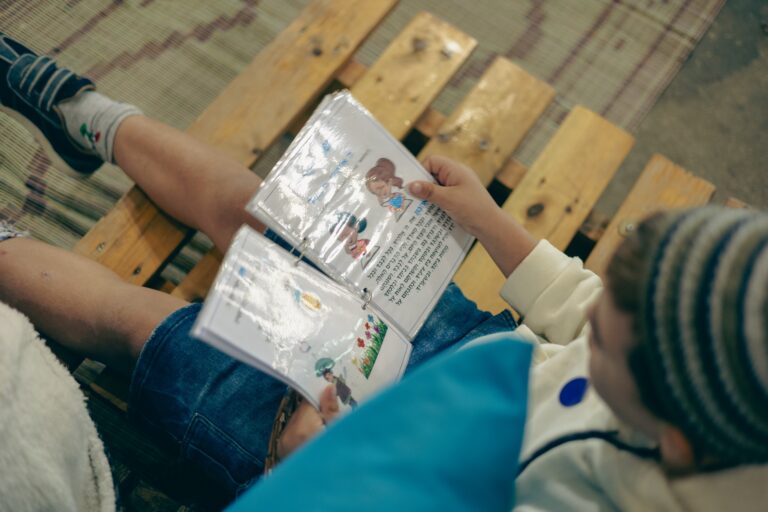
“Refugees!” Harush exclaims.
For Harush, this is an especially painful subject. When he was 17, he and his family were evacuated from Gush Katif — a bloc of 17 Israeli settlements in the southern Gaza Strip, whose 8,600 residents were forcibly removed by the Israeli government in 2005 in the hope of peace.
Frustrated with the government, Harush left Israel and spent several years in the United States. In 2011, he decided to come back and help develop communities near the border with Gaza, close to what once was home.
Shlomit, Bnei Netzarim and Naveh were all established as part of that effort, with the help of Jewish National Fund-USA. Harush is one of the community organizers who frequently travels to the US to work with JNF, which continues to help develop the area.
“The helmets, bulletproof vests and drones that helped us fight were all donated by the JNF-USA,” he says, adding that JNF is doing all it can to help the families survive the transitional period in refuge.
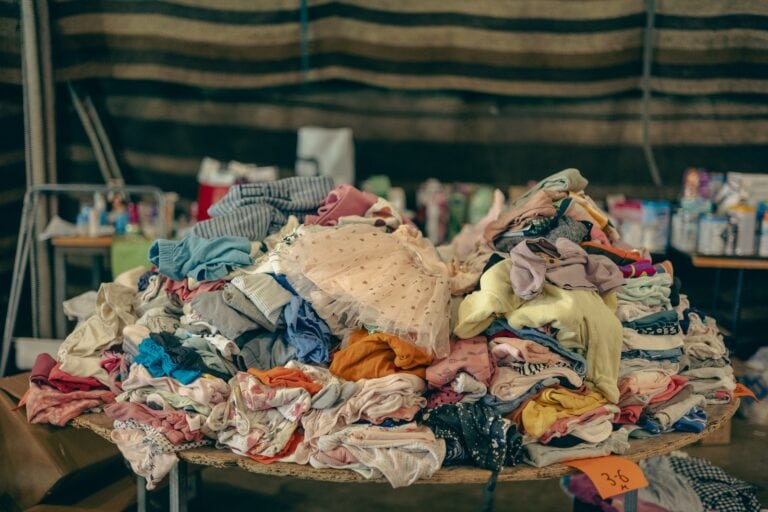
The community has already begun making plans for rehabilitation. “We’ve always been the pioneers of the Gaza border region, and we strive to be the first in its rehabilitation,” Harush says.
“We want to give courage to those who are hesitant to come back, and I believe if we invest in the area, people will come back. That’s how we win. That’s our home.”




